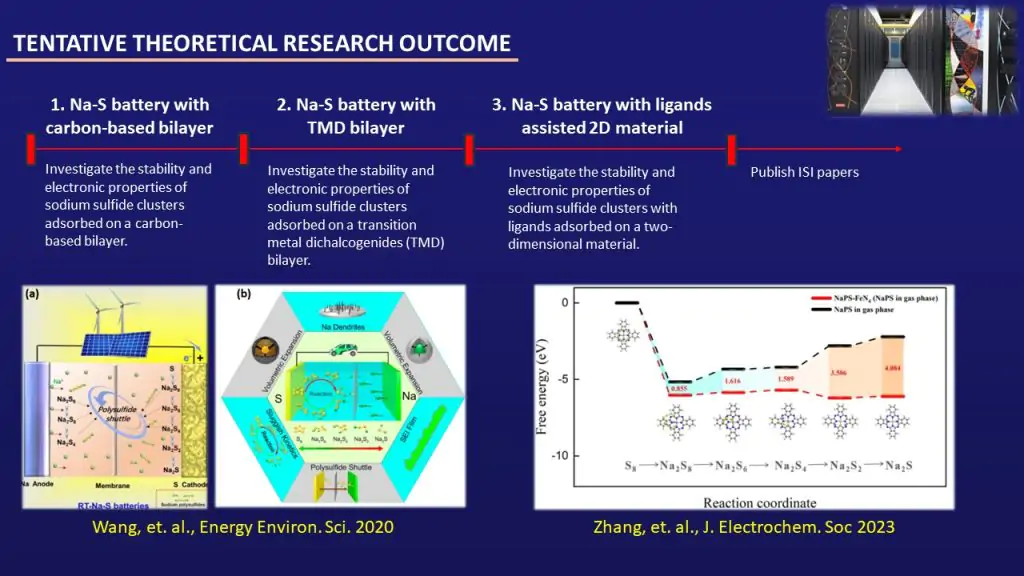
Project goals
The main goal of the project is to conduct a pre-feasibility study through a close combination of theory and experiment for a CR2032 lithium-ion rechargeable battery using sodium-lithium-manganese oxide base material. Specific goals include:
(1) Combine theoretical investigations with experiments to successfully fabricate high-quality, commercially feasible sodium-lithium-manganese oxide base materials.
(2) Improve the working quality, greatly improve the battery life by optimizing electrolytes, cathode materials, adhesive materials.
(3) Manufacture (pre-feasibility) CR2032-type sodium-ion battery.
(4) Investigate the stability, electronic, and electrochemical properties of sodium-ion batteries adsorbed sodium sulfide clusters.
Project impact
The project conducts a pre-feasibility study for a sodium-ion battery with sodium-lithium-manganese oxide base materials and sodium sulfide clusters with an application orientation for the electric vehicle industry. The project is expected to have specific impacts on the following fields of science, economics and life:
- Short-term impact: the project will provide theoretical calculation results of the phase transition process and electronic and electrochemical properties of sodium-sulfide clusters applied to sodium-ion rechargeable batteries.
- Medium and long-term effects: the project will create a premise for the research and pre-feasibility of manufacturing sodium-ion rechargeable batteries with sodium-lithium-manganese oxide base materials. If there is appropriate investment in science and technology, the project’s research results can be further developed to industrially produce rechargeable sodium-ion batteries to serve the needs of electric vehicles.
Through research and cooperation between research groups in Vietnam and research groups in Europe, the project can promote the technology transfer process as well as ensure high scientific quality for the project outputs.









